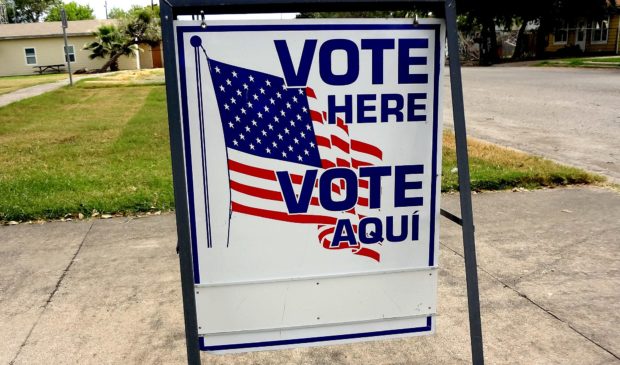Eckhardt, activists target ballot access bills in play for state lawmakers
Wednesday, March 24, 2021 by
Chad Swiatecki Voters in Texas face the prospect of restricted access to the ballot box in coming years, with a group of Republican-proposed bills in the state Legislature drawing heavy criticism from Democrats and others concerned about increased obstacles to voting.
The possible impact of the bills, and the prospects for pieces of legislation intended to protect voter access, was the focus of a recent virtual panel discussion held by state Sen. Sarah Eckhardt. Touching on some of the specifics of the restrictive bills, Eckhardt said the push is on to limit the political influence of non-white, male groups around the state.
“We are living in a deeply divided time, and in our representative democracy we know we have not achieved true representation,” she said, pointing out research that shows Democrats and Republicans hold nearly polar opposite views on election integrity.
“White people are still significantly overrepresented in halls of power, and for those of us who are not white or Republicans the crisis of the Stop the Steal movement is frighteningly unhinged from reality.”
Some of the possible impacts of the targeted bills include making it easier to prosecute election officials for voter fraud, restricting mail-in voting access for the disabled, reducing the hours of early voting locations, and making it easier for officials to purge registered voter rolls.
Myrna Pérez, director of the Brennan Center’s Voting Rights and Elections Program, said minority populations around the state that have grown in recent decades face even stronger opposition in the statehouse.
“We have had people in power try to keep our democracy for themselves, and it has hit a fever pitch because there is a great deal of anxiety over the browning of America right now and people are looking at their circumstances and are concerned that the privileges they have enjoyed artificially in this country are not going to prevail or persist for too much longer,” she said. “I am optimistic that in the end democracy and the people will prevail. Power does not yield easily and we need to be in a position where we are making voter suppression toxic.”
Throughout the discussion, panelists highlighted the work of groups like Annie’s List, the Texas NAACP, League of Women Voters, Common Cause and ACLU as organizations in need of financial and volunteer support so they can help combat efforts to limit voter access.
Marc Elias, a partner at Perkins Coie law firm who founded Democracy Docket last year, said legal challenges in 2020 were largely successful across the nation in preserving voter rights, but the focus should remain on defeating problematic bills at the state level early on.
“There’s going to be litigation against states that violate people’s constitutional rights, but I don’t want the successes of 2020 to lead people to believe that the legislative actions going on at the federal level or at the statehouses are not important,” he said. “There is more good you can do in the Legislature in Austin than a lawyer can be done in the courtroom.”
Royce Brooks, executive director of Annie’s List, said the current slate of restrictive bills have a clear link to historic voter suppression tactics that were mostly based on race and gender. Limiting voting access during the Covid-19 pandemic, she said, creates even greater challenges for local election workers.
“Proposals that we’re seeing now to reduce voter access and make it more inconvenient, expensive and time-consuming to vote, these are the cousins, nieces and nephews of literacy tests and poll taxes … to keep Black people from voting,” she said. “It’s absolutely clear that Texas Republicans don’t want us to vote and are using the 140 days in the legislative session to tie the hands of local government folks (who are) using imagination to help people vote during a deadly pandemic.”
Photo by Jay Phagan from Taft, Texas, CC BY 2.0, via Wikimedia Commons.
The Austin Monitor’s work is made possible by donations from the community. Though our reporting covers donors from time to time, we are careful to keep business and editorial efforts separate while maintaining transparency. A complete list of donors is available here, and our code of ethics is explained here.
You're a community leader
And we’re honored you look to us for serious, in-depth news. You know a strong community needs local and dedicated watchdog reporting. We’re here for you and that won’t change. Now will you take the powerful next step and support our nonprofit news organization?



